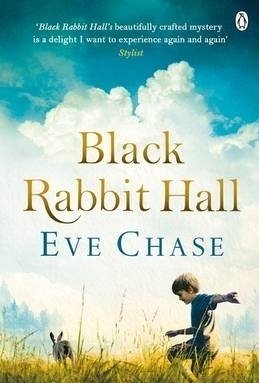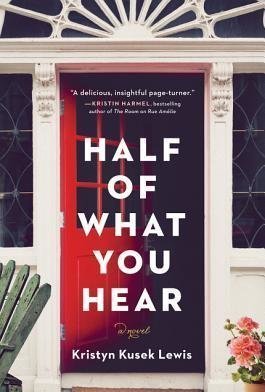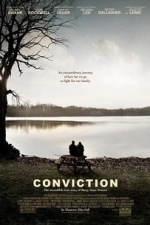Shelle Perry (66 KP) rated The Drop-Dead Temple of Doom (The Alvarez Family Murder Mysteries) in Books
Sep 22, 2021
I loved this book.
I chose to read it because I live with a junior archeologist and my daily life is filled with words like stratigraphy, digs, grants, and finds. Plus, there is lecture upon lecture about ancient artifacts, ancient history, and just what it all means (spoiler alert: It’s probably ritual). The fairly recent discoveries of LIDAR enhanced ruins covering the jungles of Central America are of particular interest around here at the moment. This book looked like fun and I am always looking to see if someone writing a story about this stuff gets it right. Heather Haven definitely did.
This is a story of intrigue, backstabbing, and just plain greed and that is just the academics on staff. Once people start dying the story really gets interesting. This book has a large cast of characters, all of them vivid and well written and so perfectly suspect. The relationship between Lee and her mom, Lila, is hilarious. On one hand, Lee is a grown woman who has proven time and again that she is quite capable, yet Lila can reduce her to gibbering incoherence in a single glance. “But, Mom!” is the comedic subtext behind most of their dialogue. Still, the two make a terrific sleuthing team and there is a lot of ground to cover in this tale. In addition to great characters, the description of the look and feel of the jungle and rainforests is spot on and puts the reader right in it.
Cumberland (1142 KP) created a post in The Smashbomb Book Club
Jun 13, 2019

Money Pro Lite: Finance
Finance and Business
App
Manage money like a pro. Сhange your spending behavior for good. Money Pro is the one place for...
Kristy H (1252 KP) rated Half Of What You Hear in Books
Mar 20, 2019
This was a really engaging, easy-to-read book that expertly captured the small town dynamic. Bess was a likeable character, struggling as an outsider in her husband's town. She's trying to put a mistake behind her at her former job, giving her even more trust issues. The novel is told mainly from Bess' point of view, but we also get snippets of town gossip, too. Ugh, having lived in such a town, I can tell you that Lewis really gets it right. I was wrapped up in the story from the beginning and felt awfully sorry for Bess--moving away from all she knew and having to deal with those hateful small town busybodies (sometimes there's nothing worse, really).
"It's like living in Stars Hollow, the charming small town on Gilmore Girls... Although honestly, so far, Greyhill feels a little more Desperate Housewives. The star character being me."
I was initially drawn to reading this book because the fake town of Greyhill, as written, is practically in my backyard. It frequently mentions my hometown of Madison (which, believe me, *never* shows up in books - it's not that big), as well as where I currently live. Even better, Lewis captures both quite well, as well as the moneyed, snobby atmosphere of Greyhill that will be intimately familiar to anyone who lives in Virginia. There's always something fun about reading about a place (or places) you know. My favorite sports team even gets a mention!
Bess is also a very realistic mother. The book does an excellent job of capturing how hard it is being a mom when your kid is going through a hard time, for example. Honestly, it does a good job of portraying parenthood in general--it's real and true throughout. I very much appreciated that. None of the sugarcoated parent/child relationships we get in some books.
This one was not completely what I expected. While it's character-driven and portrays Bess' struggle to fit in in Greyhill, it is almost a mystery at times. You can't really trust what you read and it's twisty, with some surprises thrown in. It makes for a fast, interesting read that delves into the history of Greyhill and Bess' family.
Overall, this was a really captivating book. I enjoyed the characters and the story--and the setting was a real bonus. This is the first book I've read by Krusek Lewis, but I definitely would like to read more.
I received a copy of this book from the publisher, Harper Collins, via LibraryThing in return for an unbiased review - thank you!

Grocery King – Shopping List, Recipes & Meal Plans
Shopping and Productivity
App
*** Grocery King is honored to be Featured by Apple's Editorial team on App Store's homepage under...

KAYAK Flights, Hotels & Cars
Travel and Business
App
KAYAK searches hundreds of other travel sites so you don’t have to. Book the perfect flight, hotel...

Frequent Flyer Mileage Tracker and Flight Log
Travel and Utilities
App
Copyright 2010 by Dash Technologies (screens/graphics/functionality) Please view our other apps...

3rd Grade Non-Fiction Reading Comprehension
Education and Games
App
Improve your reading skills! 3rd Grade Non-Fiction Reading Comprehension is the most advanced...
Chris Sawin (602 KP) rated Conviction (2010) in Movies
Jun 22, 2019 (Updated Jun 23, 2019)
On the surface, Conviction seems like a very mixed bag. There had been little to no promotion for it out here while the trailer hadn't really been attached to any recent screenings. I do recall seeing a trailer for the film one time online months ago, but that's it. Truth be told, that's usually the best way to see a film. No scene has the chance to be overplayed because you had seen the trailer however many times. Conviction is very much an independent film and is borderline nonexistent even though it had a limited release last week. The result was not only an extremely emotional and powerful film, but Conviction also features some of the strongest performances of the year.
The dramatic film jumps around in time right from the beginning. We're shown the horrific aftermath of Katharina Brow's gruesome murder and then jump back to the present day where we see Betty Anne visiting Kenneth in prison. Soon after that, we travel back into the past where we're shown the adult lives of Betty Anne and Kenneth. They're very much a part of each other's lives even when they both have families of their own to worry about. Kenneth's run ins with the law become more frequent as he seems to be picked up whenever the law is broken in Ayer, Massachusetts. Then, we jump even further back into the past during Betty Anne and Kenneth's childhood. They were very close even at that age, but they didn't live normal lives. They were stealing, trespassing, and breaking and entering at an early age. The time jumps were kind of infrequent and abrupt; they seemed to just happen at whim but provided quite a bit of background history about Betty Anne and Kenneth that was crucial to the overall story.
I'm honestly not a fan of Hilary Swank. She's just never done anything for me. The main point of interest for me was Sam Rockwell. Ever since his magnificent performance in last year's Moon, I've been trying to see as many of his films as possible and they very rarely disappoint. Conviction relies on the chemistry between Swank and Rockwell though. The whole movie wouldn't be anything without the connection those two have. Swank is incredibly family driven as the aftermath of her devoting most of her life to freeing her brother takes its toll on the rest of her life and her family. Rockwell is as fantastic as ever as just a simple expression on his face seems to say more about his character than any kind of reaction could, but his emotional outbursts are just as spectacular. Before he went to prison, Kenneth Waters seemed like a family man with a warm personality that cracked a lot of jokes but flew off the handle at the drop of a hat and lost control that usually resulted in a trip downtown. Prison is tearing him apart and it shows not only in Rockwell's performance but Swank's as well.
Conviction is one of the most effective dramas of the year that delivers an impact you'll be feeling long after you leave the theater. It takes you on a roller coaster of emotions that is well worth the ride. All the chips on the table lie in the hands of Hilary Swank and Sam Rockwell while their on-screen presence alone seems to drive the film even when they're not saying anything. One of the best aspects of the film is that Betty Anne believes her brother is innocent and even when that comes into question, she doesn't want to hear any of it. Near the end of the film, it doesn't really seem to matter if Kenneth is innocent or not. Betty Anne believes it to be true and that's good enough for her. Her passion seems to be the underlying factor of this film. If you're looking for a film that feels heartfelt and genuine, then Conviction is a film you may want to look into.

Black Rabbit Hall
Book
One golden family. One fateful summer. Four lives changed forever. Amber Alton knows that the hours...


